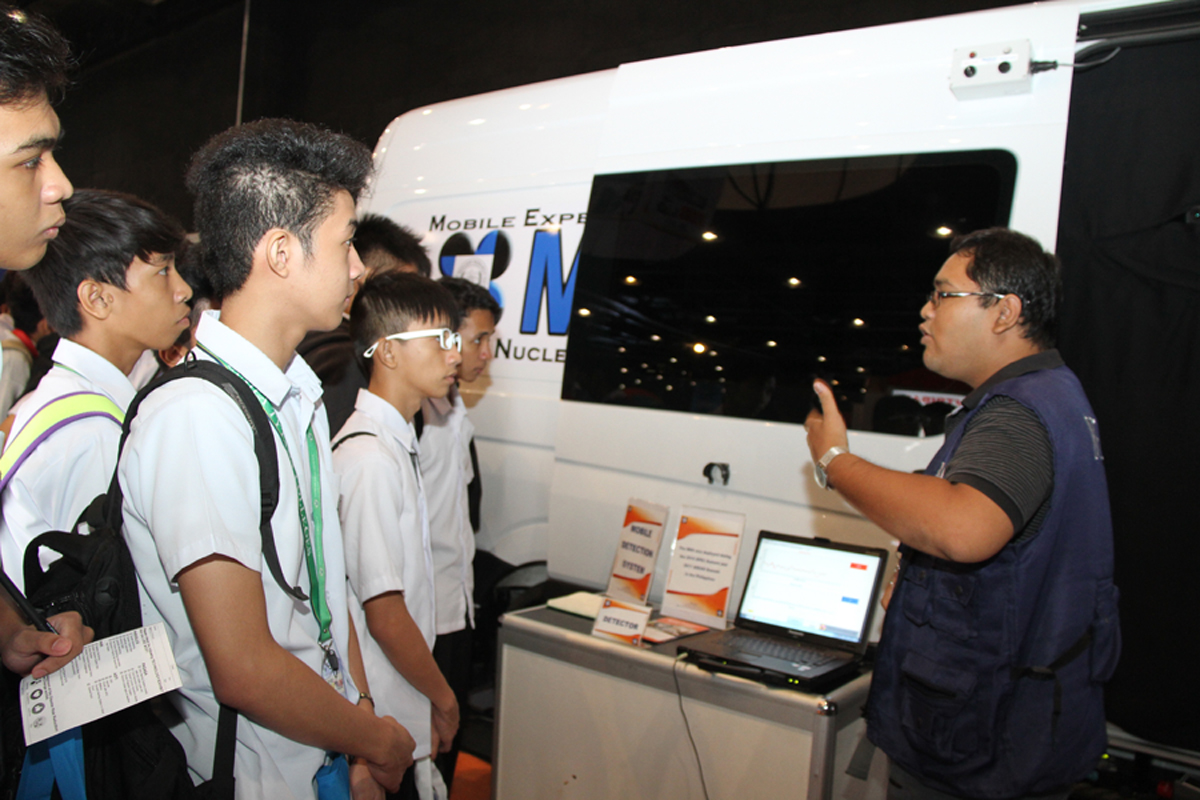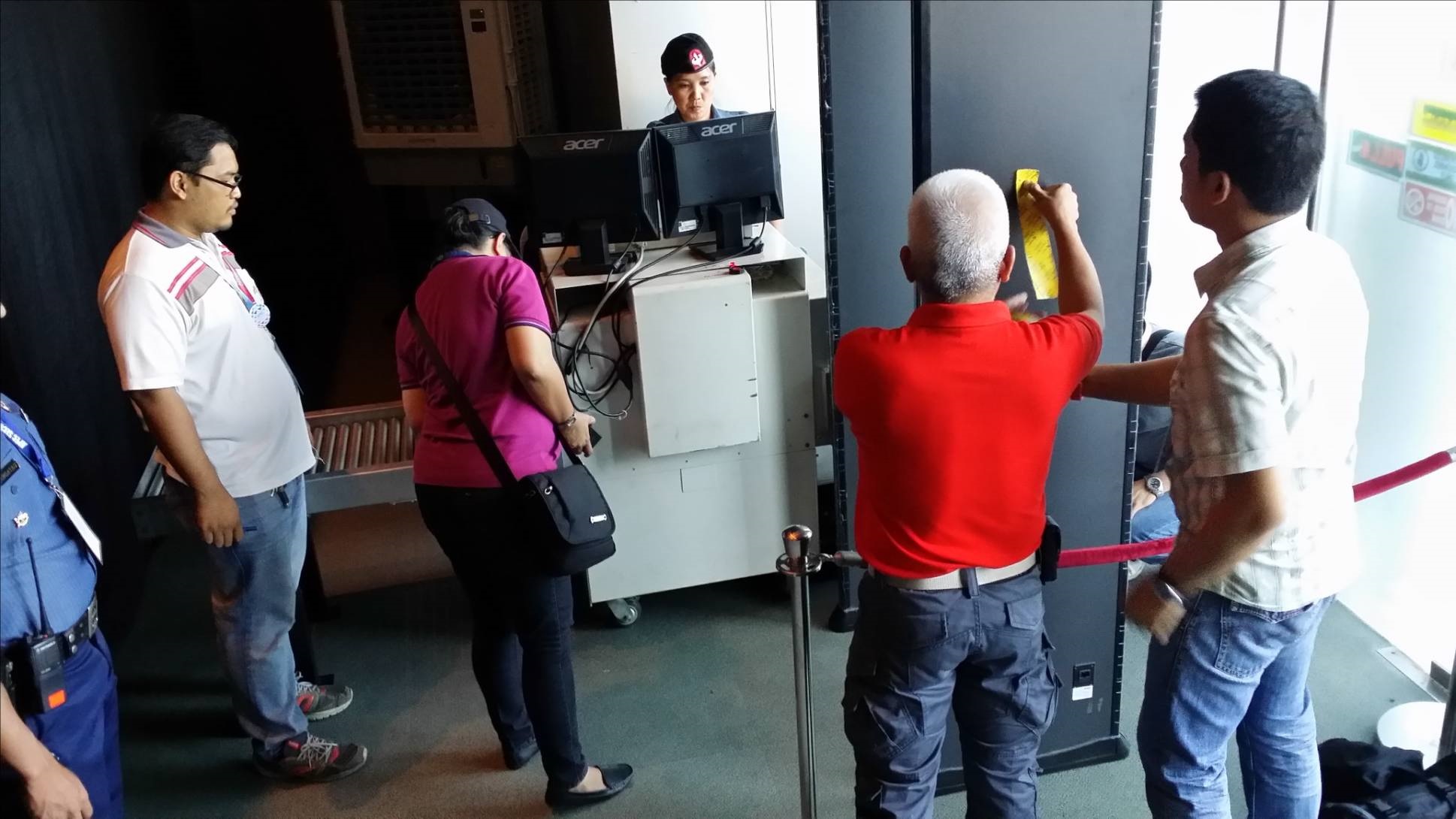
A member of the PNRI Mobile Expert Support Team (MEST) discusses about the Mobile Detection System (MDS) van previously used by PNRI and police personnel during the APEC and ASEAN summits.

PNRI MEST teams and AFP personnel in action.
PNRI Ensures Nuclear Safety in ASEAN Events
Working hard to ensure the safety and security of world leaders and other participants from possible nuclear or radiological incidents, the Department of Science and Technology – Philippine Nuclear Research Institute (DOST-PNRI) deployed its Mobile Expert Support Teams (MEST) as the Philippines hosted the Association of Southeast Asian Nations (ASEAN) 2017, in time for the intergovernmental organization’s 50th anniversary.
With their expertise in nuclear science and radiation protection, the PNRI MEST teams provided assistance to members of the Philippine National Police (PNP) and the Armed Forces of the Philippines (AFP) in carrying out security measures to prevent the unauthorized presence of nuclear and other radioactive materials during major meetings and activities, most of which were held from August 2 to 8.
These include the Grand Commemorative Celebration of ASEAN’s 50th Anniversary, the 50th ASEAN Annual Ministerial Meeting, and other important general ASEAN events being held at the Philippine International Convention Center (PICC) in Pasay City.
PNRI has also previously provided its expertise during major international events hosted by the Philippines, such as the Asia-Pacific Economic Cooperation (APEC) Summit on November 18-19, 2015, and the more recent 30th ASEAN Leaders’ Summit held on April 26 to 29, 2017.
Beyond the use of PNRI’s state-of-the-art radiation detection equipment, MEST experts were also instrumental in various training courses, seminars and workshops for police and military personnel involved in Chemical, Biological, Radiological and Nuclear Emergency (CBRNE) response actions.
These training efforts were conducted with the invaluable support of the United States Department of Energy - National Nuclear Security Administration (USDOE-NNSA) and the International Atomic Energy Agency (IAEA).












































